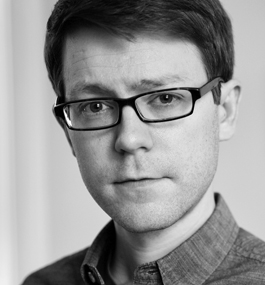Rewinding a Shameful Era of Racial Terror

Hannah Ayers
Lance Warren, MA’08
In 1897, Frazier Baker was the postmaster of Lake City, South Carolina. He was also black, and some of his neighbors hated him for that.
White people in town tried to oust him from his job. When that didn’t work, a mob set fire to his house, then fatally shot him and his infant daughter.
Baker’s lynching was one of thousands that took place in the U.S. between the end of the Civil War and the 1950s. Yet many classrooms avoid this disturbing chapter of American history altogether. “An Outrage,” a new documentary by Lance Warren, MA’08, aims to change that.
“There’s a vast, deeply human, deeply troubling history a lot of people don’t know,” Warren says. “Lynchings are viewed as a footnote. I see it as an 85-year era of racial terror. It is a profoundly important part of American history.”
The film, which Warren and his wife, Hannah Ayers, directed, edited and produced, investigates six lynchings, including Baker’s. Narration is provided through interviews with people with personal connections to the deaths as well as historians who are experts on the subject.
Contemporary images of the places where the lynchings were carried out create an eerie tone. Warren and Ayers interviewed Baker’s great-niece Fostenia in her Washington, D.C. home.
Fostenia “is someone who is very proud and has achieved a great deal in her life,” Warren says. “She can reflect on this ugly era in a personal way. That moves me.”
Last spring, “An Outrage” was screened at universities and libraries across the country. Warren deliberately kept the documentary short — 33 minutes — so it could be used in classrooms. Now he is working with the Southern Poverty Law Center to develop an accompanying curriculum for the SPLC’s nationwide network of nearly 5,000 educators.
“People aren’t born hateful,” Warren says. “If you teach them about the world, about life, in a way that more fully reflects human history, perhaps some hate can be prevented.”
Warren wasn’t planning to become a filmmaker when he came to Brandeis to study American history — he never took a course in film or film production, either as an undergraduate or a graduate student — but his studies prepared him well nonetheless, he says.
“I became rooted in the humanities, the ideas that drive or hamper human society,” he says. “That has proved to be hugely helpful to my work as a documentary filmmaker.”
For his next project, Warren plans to serve up lighter fare: He is developing a TV series on the history of African-American food, including the evolution of cooking traditions up to the present day.
— Jarret Bencks
